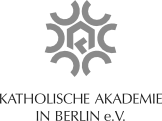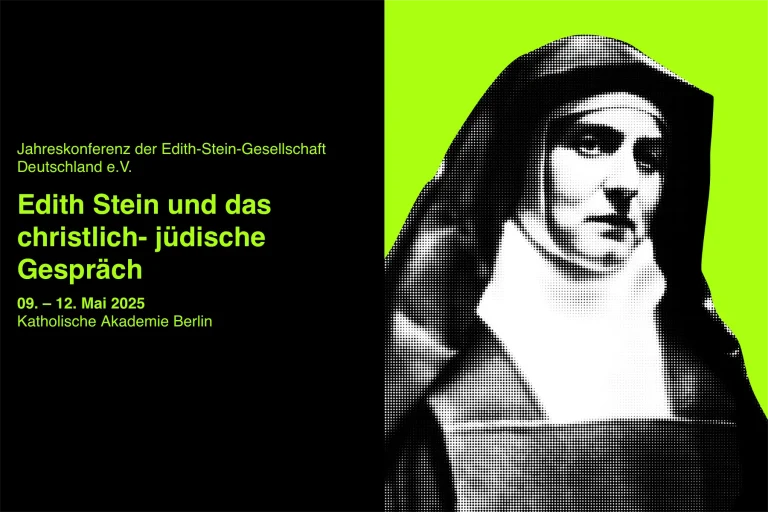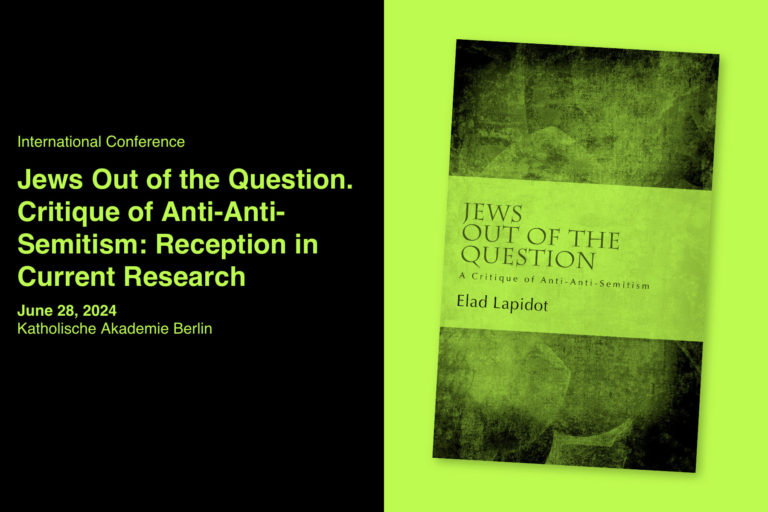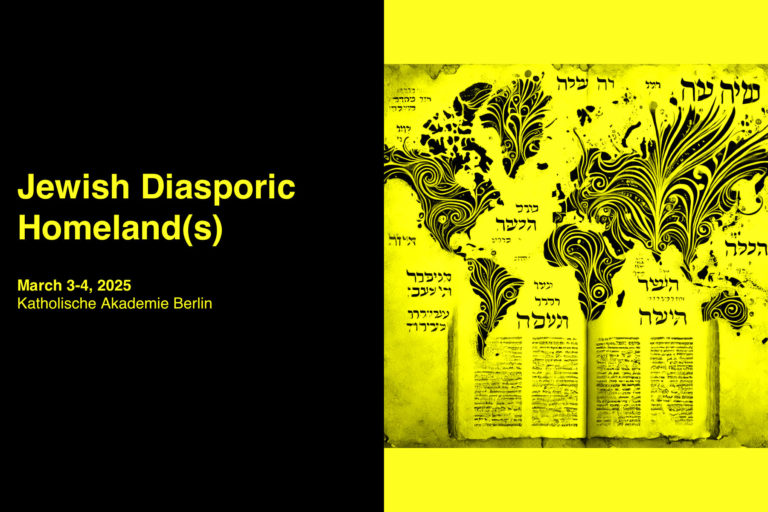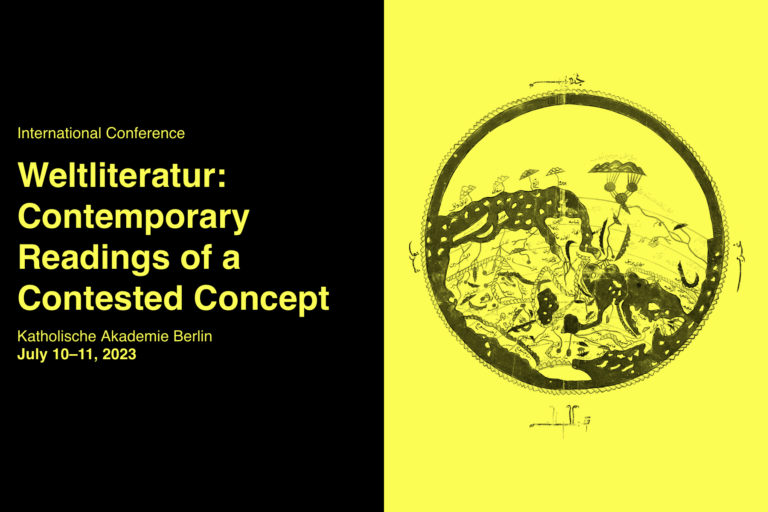Podiumsgespräch
Gustav Landauer:
Skepsis und Antipolitik
30. März 2023, 19:00 Uhr, Katholische Akademie Berlin
Gustav Landauer: Skepsis und Antipolitik
Donnerstag, 30. März 2023, 19:00 Uhr – Podiumsgespräch
Gustav Landauer, den Martin Buber als „einen Propheten der kommenden Menschengemeinschaft“ genannt hat, war ein radikaler Denker und unkonventioneller Anarchist, der eine Wiederherstellung des gemeinschaftlichen Lebens anstrebte. Diese begehrte Gemeinschaft steht im Spannungsfeld zwischen Absonderung und Vereinigung, Nostalgie und Hoffnung. Seine antipolitische Ablehnung autoritärer Annahmen beruht auf einer grundlegenden Sprachskepsis.
Der neu-veröffentliche Band Skepsis and Antipolitics. The Alternative of Gustav Landauer (herausgegeben von Cedric Cohen-Skalli und Libera Pisano, Brill 2022) wirft ein neues Licht auf Landauer. In einer Zeit, die von tiefen Zweifeln der modernen Politik geprägt ist, kann Landauers Alternative uns helfen, den Kampf um eine andere Artikulation unserer gemeinschaftlichen und ökologischen Bedürfnisse ernster zu nehmen.
Organisation
Prof. Elad Lapidot
Katholische Akademie Berlin
Das Podiumsgespräch unter der Moderation von Prof. Elad Lapidot (Katholische Akademie Berlin/Universität Lille) mit den Herausgebenden, Dr. Cedric Cohen-Skalli (Universität Haifa) und Dr. Libera Pisano (Pompeu Fabra University), und mit den Philosophen Prof. Dr. Micha Brumlik (Selma Stern Zentrum, Berlin), Prof. Dr. Dominique Bourel (CNRS und Sorbonne Paris IV), Prof. Dr. Giuseppe Veltri (Maimonides Centre for Advanced Studies, Universität Hamburg), Dr. Francesco Ferrari (Friedrich-Schiller-Universität Jena) und Jun. Prof. Dr. Yemima Hadad (Universität Leipzig) bietet Gelegenheit zur Neuentdeckung einer der wichtigsten jüdischen politischen Denker des 20. Jahrhunderts.
Participants
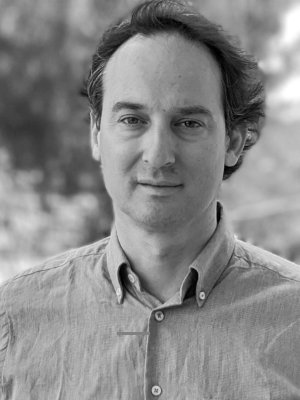
Cedric Cohen-Skalli teaches early modern and modern Jewish Philosophy at the University of Haifa. He is the director of the Bucerius Institute for the research of contemporary German History and Society. His research focuses on the relationship of Jewish thinkers to two main philosophical shifts: the shift from Medieval philosophy to early modern thought (14th-17thcentury), and the shift from early modern to modern thought (18th-20thcentury).
He published several books and many articles on diverse aspects of Jewish thought and literature in the Renaissance as well as in 19th and 20th century German speaking world and diasporas. His intellectual biography of Isaac Abravanel was published in the prestigious “the great men of the Jewish people” series of the Zalman Shazar Center and translated and augmented for The Tauber Institute Series For Study of European Jewry (Brandeis University Press). He recently edited the volume Skepsis and Antipolitics: The Alternative of Gustav Landauer. He is also translator of many works of Freud, Benjamin, Scholem, Idel and Abravanel and head of the new Project: “The Revival of Philosophy in the 19th-Century and Early 20th-Century Middle East: An Untold Story.”
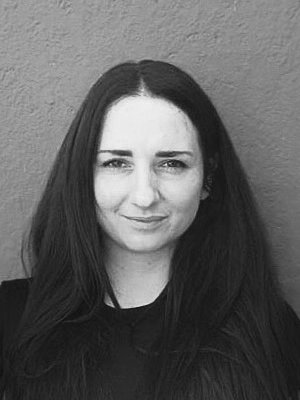
Libera Pisano is Marie-Sklodowska-Curie Fellow at University Pompeu Fabra in Barcelona. She was a research associate at the Exzellenzcluster “Understanding Written Artefacts” at the University of Hamburg, where she has been since 2016. She received her PhD in Theoretical Philosophy from La Sapienza (Rome) in 2014 with a dissertation entitled Lo spirito manifesto. Percorsi linguistici nella filosofia hegeliana (ETS 2016). She has been Research Fellow at the Department of Political and Social Science at the University of Calabria, at the Maimonides Centre for Advanced Studies, Visiting Research Fellow at the University of Haifa and at the Humboldt University of Berlin. She is the author of several essays on the role of language in Hegel’s writings, Giambattista Vico, Leopold Zunz, Moses Mendelssohn, Gustav Landauer, on contemporary German Jewish philosophy and on the concept of diaspora.
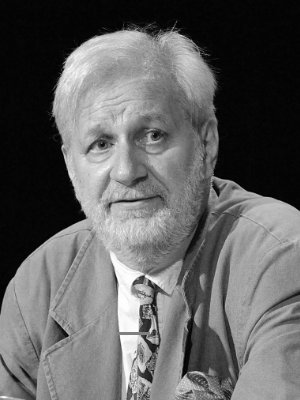
Dominique Bourel, born on the 25.01.1952, studied philosophy and the history of religion in Paris (Sorbonne), Heidelberg, Mainz (Institute for European History) and Harvard.
Directeur de recherche (research professor) at the Centre National de la Recherche Scientifique (CNRS Paris). Guest Professorships at German Universities in Berlin: (Freie Universität and Humboldt Universität), Potsdam, Kassel
Book publications: Specialist for German-Jewish intellectual history, articles and books on Moses Mendelssohn, Martin Buber and numerous scientific essays
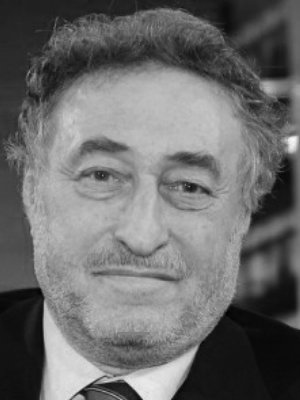
Micha Brumlik, born 1947, is a senior advisor at the Selma Stern Center for Jewish Studies Berlin/Brandenburg; he is emeritus professor at the Institute for Educational Sciences at the Johann Wolfgang Goethe University of Frankfurt am Main, from 2000 till 2005 he was head oft he Fritz-Bauer-Institute in Frankfurt am Main, an independent interdisciplinary research and education center on the history of the Holocaust and its impact; he was city councellor of the Green party from 1989-2001 in Frankfurt am Main; from 1997-1998 invited Paul lecture at the University of Indiana, Bloomington, he was fellow at the Cultural Studies Institute Essen; in 2013 he held a Harris distinguished visiting professorship at Dartmouth College; since 2013 he is senior professor at the Center for Jewish Studies Berlin/Brandenburg; in the summer term of 2016 he was visiting professor at the Franz Rosenzweig University Kassel, he was co-editor of „Blätter für deutsche und internationale Politik“, author and columnist at taz: „Gott und die Welt“, co-editor of „Jalta Positionen zur jüdischen Gegenwart“
Latest book publications: 2009; Entstehung des Christentums, Berlin 2010; ”Innerlich beschnittene Juden”, Publishing House: Konkret Literatur Verlag, 2012; Messianisches Licht und menschliche Würde. Politische Theorie aus den Quellen des Judentums, Baden-Baden 2013. „Wann, wenn nicht jetzt? Versuch über die Gegenwart des Judentums“ – Berlin 2015 ; mit Christina v. Braun (ed.), Handbuch Jüdische Studien, Wien- Köln-Weimar 2018; (ed.) “Handbuch Jüdische Studien”, Berlin 2018 mit Christina v. Braun; Preußisch, konservativ, jüdisch: Hans-Joachim Schoeps’ Leben und Werk, Köln 2019: Hegels Juden, Berlin 2019; 100 Seiten: Antisemitismus, Ditzingen 2020; Postkolonialer Antisemitismus? Achille Mbembe, die palästinensische BDS Bewegung und andere Aufreger, Berlin 202
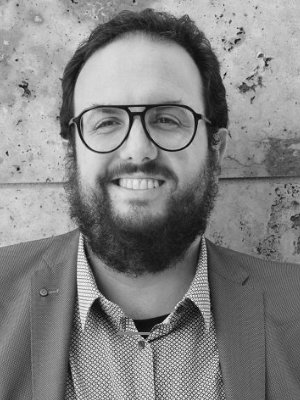
Francesco Ferrari, Dr., Koordinator das Jena Center for Reconciliation Studies, Friedrich-Schiller-Universität Jena, wissenschaftlicher Mitarbeiter am Lehrstuhl für Jüdische Religionsphilosophie und Geistesgeschichte, Goethe-Universität Frankfurt, Herausgeber im Rahmen des Projekts Buber-Korrespondenzen Digital (Mainzer Akademie der Wissenschaften); Forschungsschwerpunkte: Versöhnungsbegriff nach Auschwitz in Bezug auf Autor*innen wie: Buber, Jankélévitch, Adorno, Améry, Arendt. Veröffentlichungen u.a.: Einleitung und Herausgeberschaft: Martin Buber Werkausgabe. Vol. 11: Schriften zur politischen Philosophie und zur Sozialphilosophie, Gütersloher Verlagshaus, Gütersloh 2019, S. 15-100; Paper: Between Quest for a Heimat and Alienation. Jean Améry’s Journey after Auschwitz, in: Remembering the Holocaust in Germany, Austria, Italy and Israel, Hg. v. Pinto, Brill, Leiden 2021, S. 89–98; Vladimir Jankélévitch’s “Diseases of Temporality” and Their Impact on Reconciliatory Processes, in: Contemporary Perspectives on Vladimir Jankélévitch, Hg. v. M. La Caze, M. Zolkos, Rowman & Littlefield, London 2019, S. 95–116.
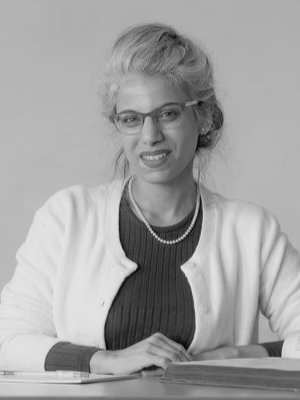
Foto: Swen Reichhold/Universität Leipzig.
Yemima Hadad holds the Juniorprofessur für Judaistik in the Theological Faculty at the University of Leipzig. Her research interests focus on Modern Jewish Thought, German-Jewish Philosophy, Continental Philosophy, Political Theology and Jewish Feminism. She recived her PhD from the School of Jewish Theology at the University of Potsdam (2021) and she is a research fellow at the Bucerius Institute for Research of German Contemporary History and Society at the University of Haifa. She held several fellowships including the Studienstiftung des deutschen Volkes scholarship (2019/2020) and the Leo Baeck Institute fellowship (2018/2019) and the Rosenzweig Minerva Research Center fellowship at the Hebrew University in Jerusalem (2017/2018).
Her research has appeared or is forthcoming in journals such as the Hebrew Union College Annual, The Jewish Quarterly Review, Jewish Studies Quarterly, Religions, Naharaim, Azimuth.
She is currently working on a monograph on Jewish feminist perspectives on maternal theology and ethics of care.
She is currently Co-organizing a conference on Women Write Buber at the at the Bucerius Institut in Haifa (July 2023).
For more info see: https://www.uni-leipzig.de/newsdetail/artikel/women-write-buber-2022-07-20
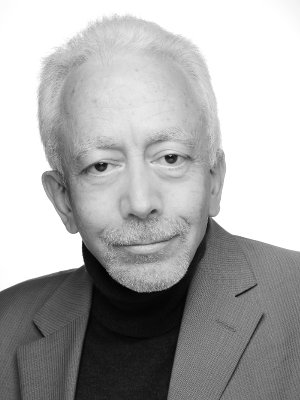
Giuseppe Veltri, war Professor für Judaistik an der Universität Halle-Wittenberg (1997-2014); er ist seit 2014 Professor für Jüdische Philosophie und Religion an der Universität Hamburg, seit 2010 Professor (h.c.) für Religionswissenschaft an der Universität Leipzig und seit 2015 Direktor des „Maimonides Centre for Advanced Studies“ in Hamburg. Von 2009 bis 2019 war er Vorsitzender des Verbandes der Judaisten in Deutschland. Seine Forschungsfelder sind Jüdische Philosophie und Religionsgeschichte in der Renaissance und Frühneuzeit. Unter seinen wissenschaftlichen Veröffentlichungen sind aufzuzählen Il Rinascimento nel pensiero ebraico. Torino: Claudiana/Paideia, 2020; Discourse on the State of the Jews and in particular those dwelling in the illustrious city of Venice (1638), by Simone Luzzatto, Bilingual Edition, (Berlin, Boston, De Gruyter: 2019); Socrates or on Human knowledge. The Serious-Playful Exercise of Simone Luzzatto, Venetian Jews (1651) (Berlin, Boston, De Gruyter: 2019). L’ebraismo come scienza. Cultura e politica in Leopold Zunz (mit Libera Pisano). Turin: Paideia, 2019; Alienated Wisdom. Enquiry into Jewish Philosophy and Scepticism (Walter De Gruyter: Berlin, New York, 2018). Language of Conformity & Dissent. The Imaginative Grammar of Jewish Intellectuals in the Nineteenth and Twentieth Centuries. Academic Studies Jewish Press: Boston 2013; Renaissance Philosophy in Jewish Garb: Foundations and Challenges in Jewish Thought on the Eve of Modernity. Leiden, Boston: Brill, 2009.
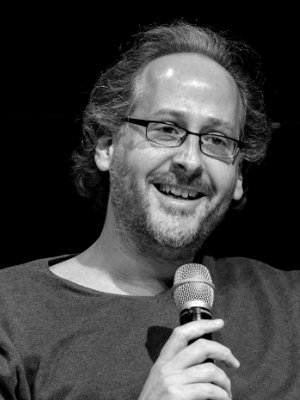
Elad Lapidot, geboren 1976 in Jerusalem (Israel). Studium der Jura und Philosophie an der Hebräischen Universität Jerusalem. Promotion zur Philosophie von Martin Heidegger an der Université Paris-1 Panthéon-Sorbonne. Tätigkeiten als wissenschaftlicher Mitarbeiter am Institut für Systematische Theologie der Universität Bern, sowie am Institut für Philosophie und am Seminar für Katholische Theologie der Freie Universität Berlin, und als Lehrbeauftragter am Institut Kirche und Judentum der Humboldt Universität Berlin.
Publikationen: Jews Out of the Question. A Critique of Anti-Anti-Semitism (SUNY Press, 2020); Heidegger and Jewish Thought. Difficult Others, edited by Elad Lapidot and Micha Brumlik (Rowman& Littlefield, 2018); Etre sans mot dire : La logiqe de ‘Sein und Zeit’ (Zeta Books, 2010).



